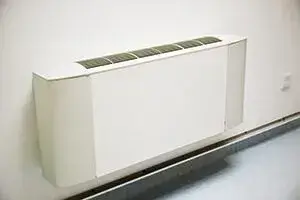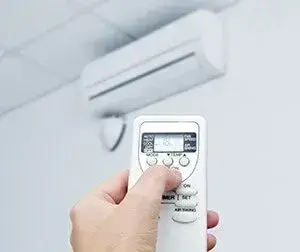 As winter temperatures plummet, the air in your home can become uncomfortably dry. Not only does this contribute to chapped skin and static electricity shocks from everything you touch, but it increases the volume of dust and allergens floating in the air. Additionally, many viruses thrive in a low-humidity environment, increasing the likelihood that household members will catch a cold or flu virus. Portable air humidifiers are available and are suitable for individual rooms or small homes. However, they take up floor space, and many will require water refills as often as twice a day, making them a less-than-convenient solution for busy households.
As winter temperatures plummet, the air in your home can become uncomfortably dry. Not only does this contribute to chapped skin and static electricity shocks from everything you touch, but it increases the volume of dust and allergens floating in the air. Additionally, many viruses thrive in a low-humidity environment, increasing the likelihood that household members will catch a cold or flu virus. Portable air humidifiers are available and are suitable for individual rooms or small homes. However, they take up floor space, and many will require water refills as often as twice a day, making them a less-than-convenient solution for busy households.
Whole-house humidifiers are a superior option, providing a low-maintenance, highly effective solution. Keep reading to learn more about whole-house humidifiers and for a few tips to help you decide whether you need one.
How Does a Whole-House Humidifier Work?
The whole-house humidifier spreads water vapor through your heating ducts via your home’s HVAC system. The humidistat allows you to control the humidity level of your home, increasing it as outside temperatures drop and lowering it as temperatures warm. Unlike portable humidifiers, whole-house humidifiers connect to a water line, eliminating the need for constant refills.
Do You Need a Whole-House Humidifier?
Whole-house humidifiers might seem like a no-brainer for parched households, but are they a wise investment for you? For all of their benefits, humidifiers aren’t without their drawbacks, such as possible mold growth within walls and ducts. Even so, they are beneficial for many homes, particularly those in regions that experience extremely cold temperatures. Here are a few reasons you may want to invest in one.
You Have Household Members with Allergies or Asthma

Dry air irritates nasal passages, causing the body to produce more mucus and potentially leading to a sinus infection. This is particularly problematic if you or a member of your household has allergies or asthma. A well-balanced level of humidity helps to keep nasal passages clear, letting the body purge any allergens that it’s exposed to.
You Have Wooden Floors and Furniture
Dry air isn’t just uncomfortable; it can actually cause damage to your furnishings. If the air is dry enough, then wooden tables and chairs can actually crack, and wooden floorboards can develop gaps. A whole-house humidifier provides you with better control over the humidity level in your home, helping to prevent damage.
Your Home Isn’t Well-Insulated
If your home is drafty or has a lot of cold spots, then it’s likely more susceptible to extreme dryness. Cold air is dry. During the winter, that cold air can seep in, causing humidity levels to drop.
If you decide that a whole-house humidifier is the best decision for your home, then it’s essential that you have an experienced professional take care of the installation. At B & W Heating and Cooling, our experts provide the expertise you need to start enjoying improved air quality.


